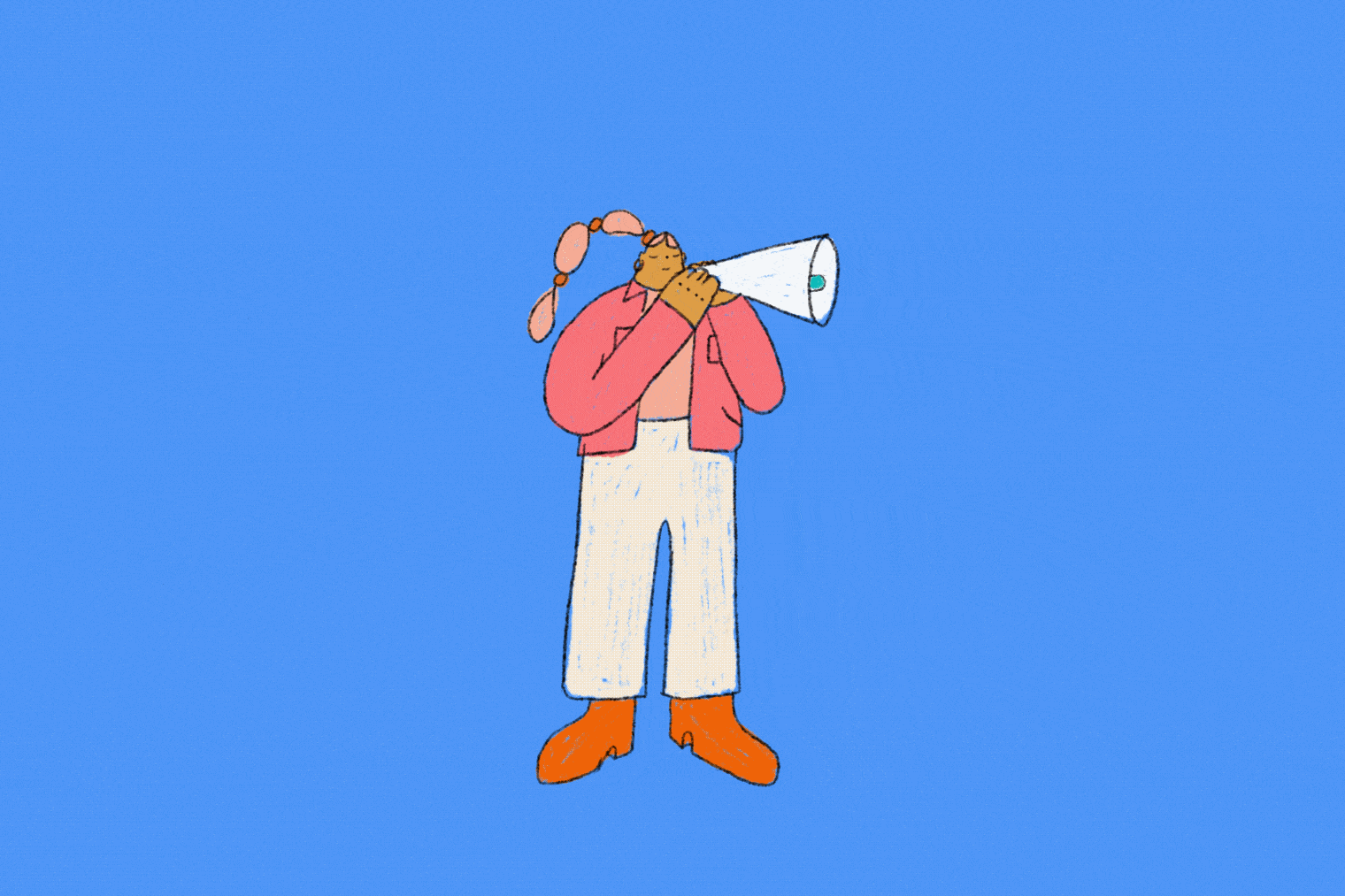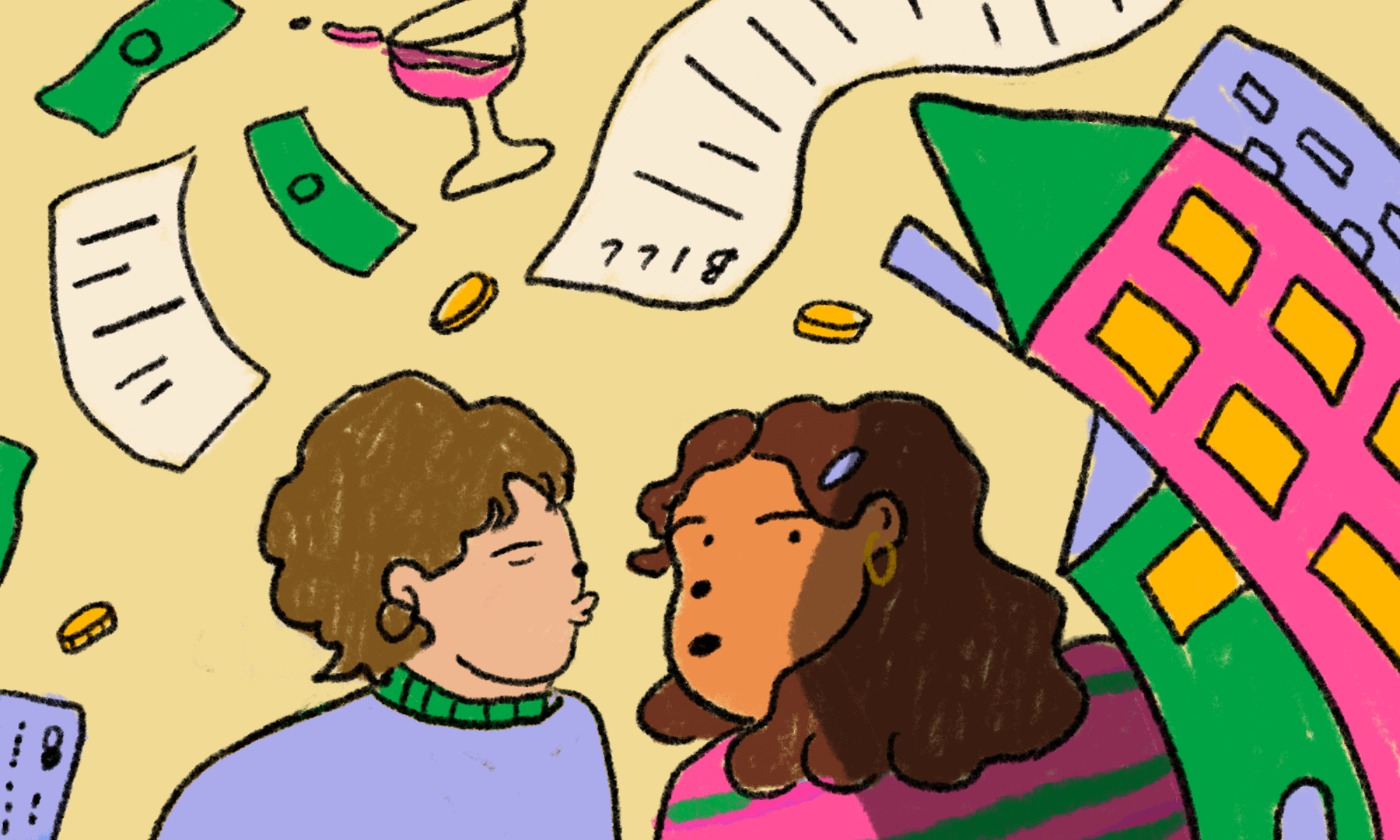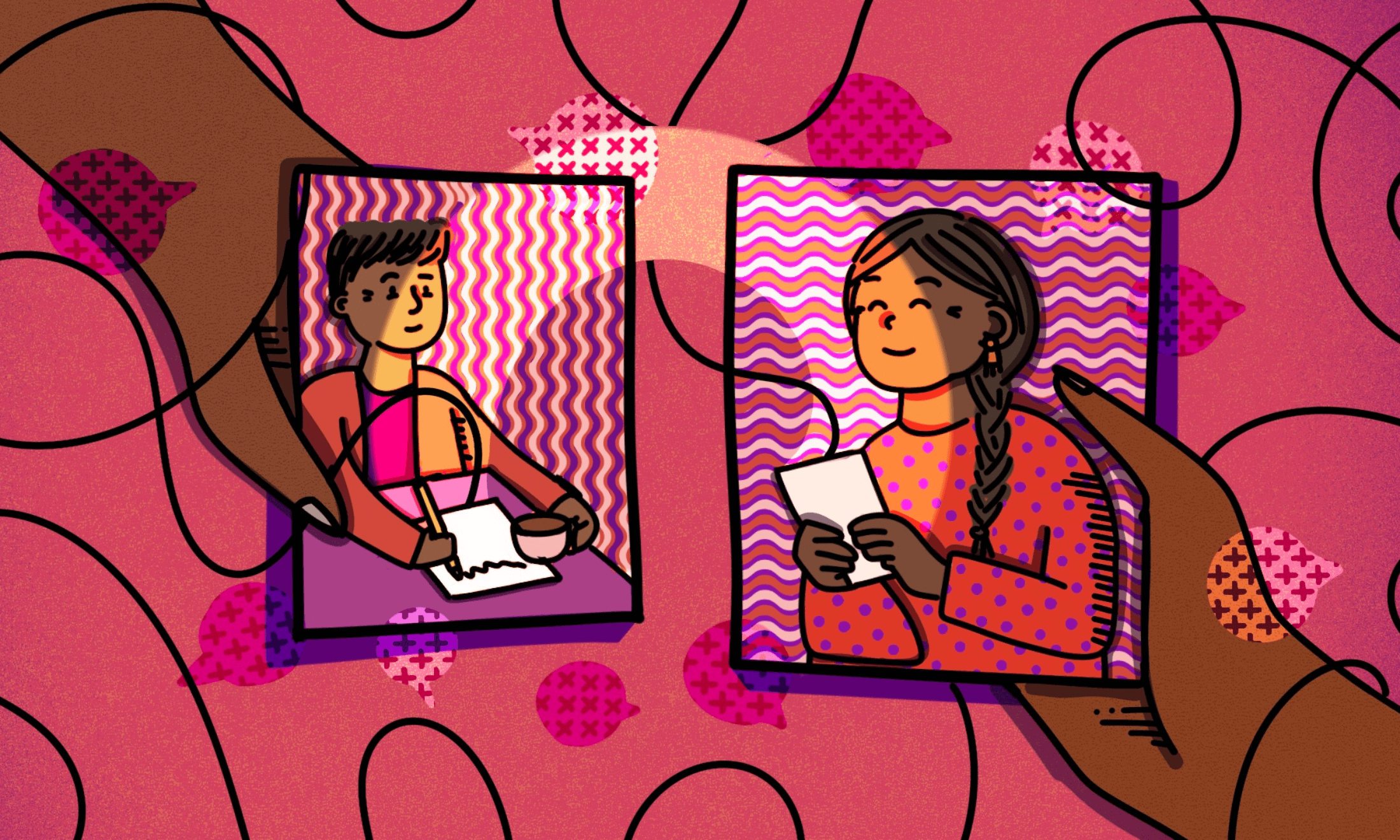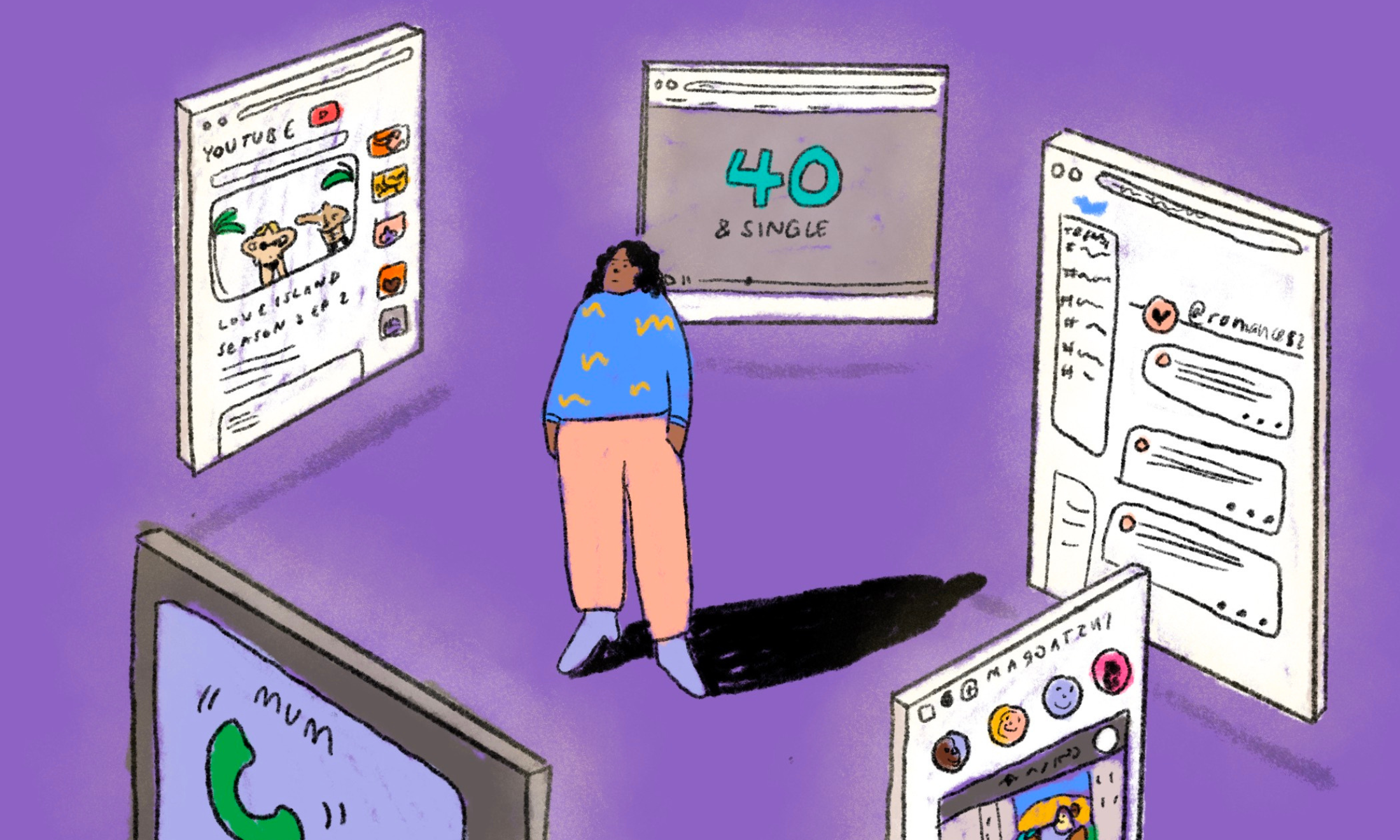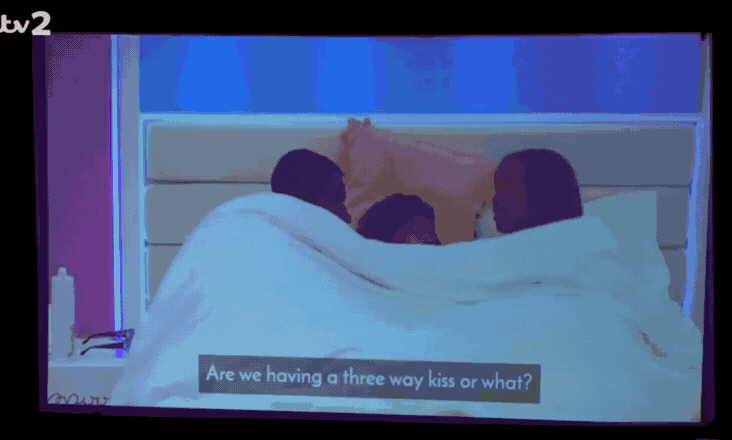
Julian Myles
‘Constant high drama’: what it can be like to date with a borderline personality disorder
This Valentine’s Day, Haja-Marie Kanu reflects on the ups and downs of dating with BPD and how it can often feel self destructive.
Haja Marie Kanu
12 Feb 2021
If you’re like me, dating probably goes one of two ways.
Either you meet someone, they show the slightest inkling of interest and you fall in love. You tie all hope of ever feeling whole again to their approval and believe they’re your soulmate. You go on a second date, maybe even a third! Then things fall apart, and so do you.
Or you meet someone and like them. They like you too! And then you start questioning everything. What’s their end goal? Did they always chew so loudly? Why are they around all the time? You convince yourself that you’re fundamentally incompatible.
With a serious case of the ick, you take a well deserved break from dating. You tell yourself you’re better off alone, and that true love was never an option for someone like you. Then the overwhelming need for validation from a romantic partner pushes you to once again endure the trials and torment of dating apps. All the while knowing that you’re doomed to fail.
As someone with a borderline personality disorder (BPD), I’m always questioning when a very human need for validation, and the emotional consequences of its absence, becomes a disorder. How do we draw the line between a ‘normal’ response to rejection and a self-destructive pattern of behaviour? I know the answer to these questions on a rational, intellectual level. I have read countless articles and studies on BPD. But that doesn’t change how I feel about myself on my darkest days, what I believe about the world when I am angry, or what I see in a smile when I’m falling in love. I’ve found that the disjuncture between knowing and feeling is one of the many conflicts of a disordered personality.
“When does a very human need for validation, and the emotional consequences of its absence, become disorder?”
BPD is commonly understood through the symptoms of impulsivity, and unstable emotions and interpersonal relationships (think Girl, Interrupted). If you google ‘borderline personality disorder’ and ‘dating’ one of the first hits is a Psychology Today article that warns “if you’re on eggshells due to constant high drama, your partner may have BPD” – a shining review for any potential suitors. Such characterisations of BPD sacrifice nuance and complexity in favour of narrative, but they are not entirely untruthful.
The very borderline habit of yo-yoing between complete idealisation and utter repulsion of the other has wreaked havoc on my past relationships. Part of healing is reckoning with the harm I have caused and the ways I have actively undone my relationships, romantic or otherwise. However the article’s narrow focus on the harm people with BPD can inflict minimises our own vulnerability in relationships, particularly the high rates of abuse that people with BPD face.
“The very borderline habit of yo-yoing between complete idealisation and utter repulsion of the other has wreaked havoc on past relationships”
What the popular imagination fails to encapsulate is that the core of BPD is an unstable and overwhelmingly negative relation to the self. External reality is always subservient to the internal belief that there is something wrong with me, that I’m not quite whole: that the part of me that makes me precious and loveable is missing. If someone does not love me it’s because I’m unlovable. If they do love me, they are lying. At least, that is how I feel when I am at my lowest.
Studies have shown that people with BPD “experience heightened emotional reactions to stimuli”. This means that while a minor inconvenience (a long queue at the post office, a cancelled date) might plunge me to the depths of despair, I can also feel joy and love at that same intensity. At risk of cringe, dating with BPD is like a game of snakes and ladders except the ladders are rocket ships and the snakes make you want to die.
The culture industry tends to glorify intensity as desirable in romantic partners. I’m not just thinking of the ‘manic pixie dream girl’ trope, created by male writers who see women as a means to an end in male protagonist’s development – the quintessential example is the titular character of John Green’s Looking for Alaska (the hurricane, to Miles’ rain). I also have in mind the cultural obsession with ‘love at first sight’, which reduces the intricacies of love to the early stages of intensity, a passionate but unsustainable condition. And love as the grand gesture: the impulsive decision to race to the airport or to object to the wedding; ending the narrative arc of the story with little consideration for what happens after.
“Dating with BPD is like a game of snakes and ladders except the ladders are rocket ships and the snakes make you want to die”
For years, I found refuge in these films, series and books that validated and even romanticised the feelings of intensity that I could not escape. Eventually I learned that the logic of fiction does not extend to real life; there is always an after. So I continue to watch Carrie Bradshaw’s unrealistic dating life, but can only hate what I see of myself in her.
BPD is a disorder that doesn’t go away, but I’ve been told it does get easier to manage with a combination of therapy, medication and time. Research suggests that the symptoms are most severe in adolescence and young adulthood, the period in which I find myself now. The challenge is getting through it, and many do not (BPD has a very high rate of suicide and suicide ideation). Lockdown has also had a negative effect on the mental health of the country as a whole.
For me, lockdown means I am isolated from many of my usual (albeit unhealthy) coping mechanisms, including projecting my own insecurities and flawed dreams onto unsuspecting dates. Instead, I have the luxury of self-reflection and endless time. I am left with my own mind, my own worst enemy which only became this way to help me survive, with nowhere to run and nowhere to hide.

